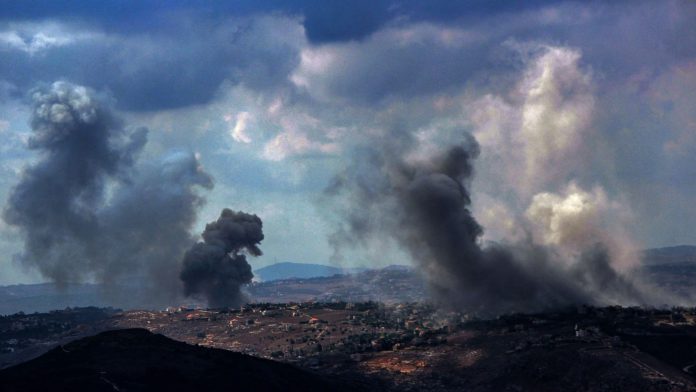Devastation in Lebanon: Nearly 500 Lives Lost in Israeli Airstrikes – What’s Happening?
In a tragic escalation of violence, Lebanon has faced its deadliest day in decades, with nearly 500 people reported dead following brutal Israeli airstrikes. This devastation comes in the wake of Israeli military actions aimed at targeting Hezbollah commanders accused of plotting further violence. As civilians grapple with the fallout, the world watches with bated breath, fearing a spiral into full-scale war.
Impacts of the Strikes on Lebanon and Civilians
The latest round of bombings has resulted in at least 492 fatalities and over 1,600 injuries, including 35 children. This catastrophic loss marks the highest single-day death count in Lebanon since the end of its civil war in 1990. The airstrikes have not only affected the immediate victims but also sent thousands fleeing. Families have packed their cars and taken to the roads in a desperate attempt to escape the chaos, with highways jammed as they journey toward Beirut, seeking safer ground.
Imagine the heart-wrenching sight: entire families crammed into vehicles, trying to escape danger. Children clinging to their parents, belongings hastily piled on car roofs, and the roads choked with traffic—this is a reality many Lebanese citizens are facing as Israel continues its air campaign.
Israel’s Military Campaign Against Hezbollah
Israel has declared its intention to eradicate Hezbollah’s presence along its northern border, leading to some of the most intense cross-border fire exchanges seen in months. A military operation codenamed "Northern Arrows" has been launched, targeting Hezbollah strongholds across southern Lebanon.
Despite the tragic civilian casualties, Israeli officials stress their commitment to limiting harm to non-combatants, asserting that every effort is made to avoid civilian targets. Prime Minister Benjamin Netanyahu has explicitly stated that Israel’s conflict is not with the Lebanese people, but with Hezbollah, which he claims uses civilians as shields.
Fleeing from Danger: The Humanitarian Crisis Unfolds
As the bombings continue, fear has swept through the southern regions of Lebanon, forcing residents to evacuate. Real stories illustrate the desperation on these highways: elderly citizens carried on the backs of civil defense workers, children lost in the chaos, entire communities uprooted from their homes. The UN and various humanitarian organizations are mobilizing to provide relief, but resources are strained amid increasing needs.
Meanwhile, the UK Foreign Office has advised its citizens to exit Lebanon while commercial flights are still available, emphasizing the growing dangers. Such significant urgency amplifies fears that the conflict could escalate dramatically.
The Broader Implications of Escalating Violence
As tensions mount, international concerns grow about the potential for an all-out war in the region. With the backdrop of an ongoing war against Hamas in Gaza—a conflict that began in earnest nearly a year ago—Israel’s military focus has now shifted to northern fronts.
The United States is taking notice, with additional troops being sent to the Middle East. As part of a broader strategy, U.S. warships and fighter jet squadrons are on standby, prepared to respond to any further escalation. The Pentagon’s efforts aim to protect both U.S. interests and its ally, Israel.
Hezbollah’s Response and Regional Tensions
In retaliation, Hezbollah has launched several attacks targeting Israeli military sites, including significant launches aimed deep into Israeli territory. These provocative actions hint at a potential for increased warfare, as both Israel and Hezbollah brace for further confrontation.
The European Union’s foreign policy chief, Josep Borrell, has expressed grave concerns, stating that the situation is approaching “almost a full-fledged war.” In his assessment, the current hostilities represent a dangerous precipice for regional stability.
Conclusion: A Call for Humanity Amidst Conflict
As the dust settles on the latest violence, one cannot help but reflect on the suffering endured by civilians in such conflicts. The ongoing loss of life and the humanitarian crisis unfolding in Lebanon underline a need for urgent diplomatic interventions to prevent further escalation.
The staggering human cost of these airstrikes serves as a stark reminder that behind each statistic lies a life—families torn apart, children forever affected, and communities irrevocably changed. Global voices must unite to call for peace and de-escalation, ensuring that Lebanon does not become a ground zero for wider regional turmoil. It’s time for humanity to take precedence over conflict.

